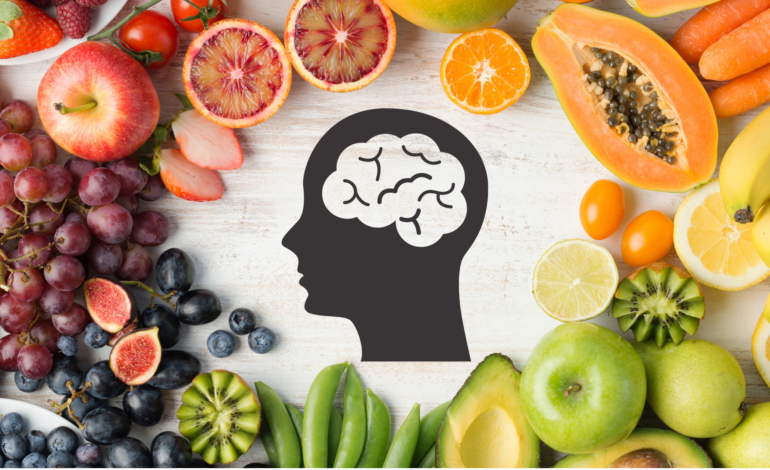
In the hustle and bustle of our daily lives, it’s easy to overlook the profound impact that our diet can have on not just our physical well-being but also our mental health. The saying “you are what you eat” takes on a whole new dimension when we consider the intricate relationship between nutrition and mental well-being. As research in the field of nutritional psychiatry continues to unfold, it’s becoming increasingly clear that the food choices we make can significantly influence our mood, cognition, and overall mental health. Let’s delve into the fascinating world of the connection between nutrition and mental health – it’s truly food for thought.
The Gut-Brain Axis: Unraveling the Connection
The brain and the gut are connected via a complex communication system known as the gut-brain axis. This bidirectional pathway plays an important role in maintaining homeostasis by regulating hormones and immune responses, as well as controlling appetite and mood. Research suggests that stress, emotional trauma, and other adverse environmental factors can damage this communication system. In turn, this can negatively affect sleep quality, mental health, and overall well-being.
One of the key players in this relationship is the gut microbiota. The gut microbiota is comprised of trillions of microorganisms that inhabit our gastrointestinal tract — commonly referred to as gut flora — and play a crucial role in maintaining homeostasis by helping us digest food and synthesize vitamins B12 and K2. Emerging research suggests that these microorganisms may influence brain function by producing neurotransmitters like serotonin.

Consuming foods rich in probiotics and prebiotics has been shown to positively impact the composition and diversity of our gut microbiota (3). This can promote healthy digestion, reduce inflammation throughout our body, and improve mental health by influencing neurotransmitter production.
Nutrient Deficiencies and Mental Health
The brain has its own energy supply, but it also relies on nutrients from food to support its functions, including memory and learning, mood regulation, and overall cognition. Certain nutrients play a pivotal role in brain function, and deficiencies in these essential elements can lead to mental health issues. For example, omega-3 fatty acids, commonly found in fatty fish like salmon and flaxseeds, have been linked to cognitive function and mood regulation. Deficiencies in these fatty acids have been associated with an increased risk of depression and other mental health disorders.
Similarly, the B-vitamins, particularly B6, B9 (folate), and B12, are crucial for neurotransmitter synthesis. Inadequate levels of these vitamins have been linked to conditions such as depression and cognitive decline. Ensuring a balanced diet that includes a variety of nutrient-dense foods is vital for supporting mental well-being.
The Sweet and Sour Connection
For most of us, sugar is not an essential nutrient. We can survive without it, but it’s hard to thrive without it. Sugar is a relatively recent addition to our diet, and yet it has become the number one source of calories in most western diets.
While the occasional indulgence in sweet treats may lift our spirits temporarily, a diet high in refined sugars has been linked to an increased risk of mental health disorders. The rollercoaster of blood sugar levels that follows the consumption of sugary foods can lead to mood swings, irritability, and fatigue. Additionally, high sugar intake has been associated with inflammation, which is increasingly recognized as a factor in the development of mental health conditions.
Mindful Eating for Mental Well-Being
Mindful eating is a practice that has been shown to benefit mental health. It is defined as paying attention to the flavors, textures, and sensations of each bite while recognizing and responding to hunger and fullness cues. Mindful eating does not mean dieting or restricting calories; it simply means taking time to enjoy food, rather than mindlessly stuffing our faces in front of the TV.

Mindful eating can improve quality of life and help prevent obesity-related diseases such as diabetes and heart disease. A fast-paced lifestyle often causes us to shove food in our mouths without even tasting it or chewing properly. This can lead to overeating, which contributes to weight gain and poor health.
Incorporating mindful eating into your daily routine can have profound effects on your overall well-being. For example, research suggests that mindful eating may reduce anxiety levels by helping you identify what triggers negative emotions so that you can avoid them in the future. It also helps you tune into your body’s signals so that you know when it’s time for a meal or snack.
As we navigate the complexities of modern life, it’s essential to recognize the profound impact of nutrition on our mental health. The connection between what we eat and how we feel is a dynamic and intricate relationship that deserves our attention. By making informed and mindful food choices, we can nourish not only our bodies but also our minds, promoting a holistic approach to well-being. So, the next time you sit down for a meal, remember – it’s not just food on your plate; it’s potential nourishment for your mental health.
RUCHI RATHOR Founder & CEO
Payomatix Technologies Pvt. Ltd.
FOUNDER AND INVESTOR | PAYMENTS PROCESSING EXPERT | MERCHANT ACCOUNT SOLUTIONS | WHITE LABELLED PAYMENT GATEWAY | Dreamer, Creator, Achiever, Constantly Evolving
Website Ruchi Rathor: https://ruchirathor.com
Website Healing Heart https://thehealingheart.me/
Instagram https://www.instagram.com/ruchirathor/
LinkedIn https://www.linkedin.com/in/ruchirathor12/
Facebook https://www.facebook.com/ruchi.rathor.magnificient
Tumblr https://www.tumblr.com/blog/ruchirathor-thehealingheart
Medium https://medium.com/@ruchirathor_23436









